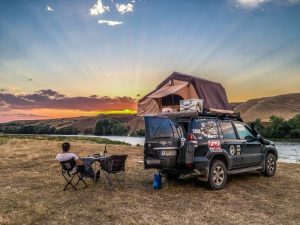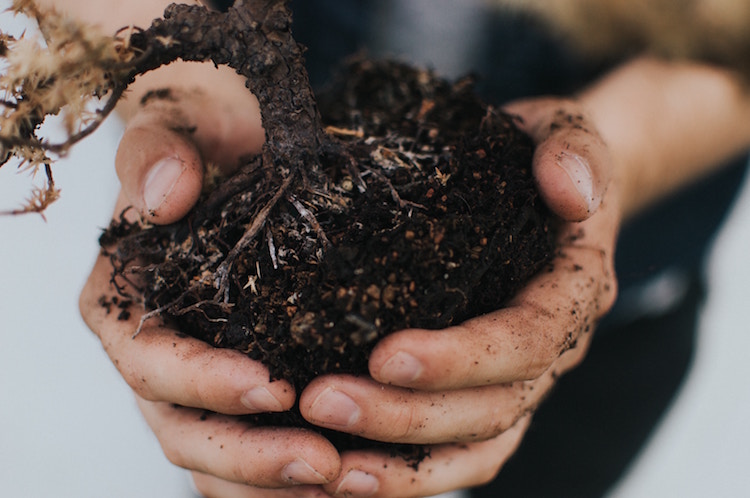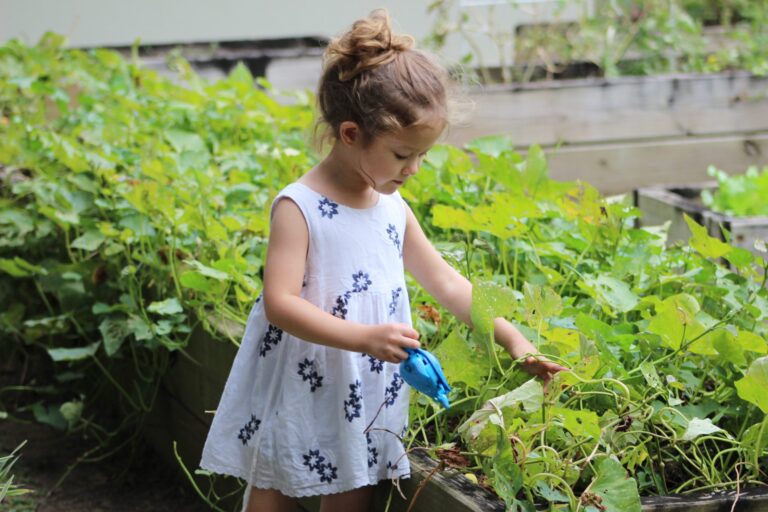17 Tips that Can Help You Protect the Environment When You’re Overlanding
 We all know that overlanding is a great opportunity for both socialization and exploration, as there’s not much technology to see around when you are going out in the nature.
We all know that overlanding is a great opportunity for both socialization and exploration, as there’s not much technology to see around when you are going out in the nature.
However, we must remember one very important thing. Namely, that nature and the surrounding environment make themselves available to us and that we are not entitled to them. In short, we should do our best to preserve the environment while overlanding.
Be considerate to your surroundings and start making positive choices so that both your children and grandchildren will be able to enjoy nature as it is!
- Don’t Use Plastic Bags
Plastic is very hard to recycle, and it is not quite biodegradable. Given this, you should start saying no to the plastic bags that you buy at checkouts. Instead, you can look for plastic-free alternatives of the items that you use daily.
You start with plastic-free bags and then move on to groceries and food that are packed in recyclable cardboard cartons, boxes, bottles, or tins. These are a much better option if you care for the environment.
- Always Recycle
When camping, it is strongly recommended that you bring with you the same good housekeeping habits that you apply at home. This will make recycling possible even in remote areas – and that’s a very good thing!
Basically, you will want to keep your cardboard, tins, glass bottles, newspapers, and jars in your own bags until you get back home. Even if it may seem cumbersome and these things may take up quite some space in your vehicle, it is always better to do so than simply leaving garbage throughout the wilderness.
One thing that you should remember is that almost nothing you have with you while overlanding should be thrown on the side of the road or left at your camping site.
- Avoid Single-Use Products
Naturally, single-use products are the ones that you will most likely feel like leaving behind while overlanding. Batteries, as well as gas containers or bottles, should be replaced with their single-use counterparts.
Given the cutting-edge technology we now have available, you should rely on USB rechargeable gadgets, solar torches, kinetic watches, refillable gas bottles, as well as solar-powered device charging systems.
In fact, you may even end up saving some money, and not only the environment, if you choose to invest in these advanced multiple-use products.
- Slow Down and Pump Your Tires Up
This is pretty much straightforward – using less fuel means saving money and keeping the surrounding environment in good health. With fewer miles traveled each day, at a reduced speed as well, you will lessen your carbon emissions.
Moreover, reducing vehicle drag and keeping your tires inflated to the maximum will also make your car always run smoothly so that you don’t burn more fuel while overlanding. You should also go with biodiesel, if your car allows it, as it is the better choice in terms of fuel when it comes to changing your impact on the environment.
- Be Wise with Water
Our main advice for you is to cherish your water supply. While overlanding, you should reduce the amount of water you use by showering less, using less shampoo and soap, and saving your laundry for the next holiday park.
However, the ultimate advice would be to use low-flow taps in your rig and transfer rainwater to your tank. Moreover, you can modify your rig to redirect the water you use in your shower or sink to your toilet – thus, you’ll save even more water.
- Eat Local and Organic
While overlanding, local and organic food should represent your main option of nutrition. Leave some of your habits behind at home and choose food that has fewer miles traveled – in short, food that uses a lesser amount of fuel to refrigerate and transport.
Local food also means a fresh, nutritious, and tasty meal and you can’t say “no” to that. After all, you will be eating food from the local farmers. Organic food will also lower the fossil fuels we produce, as well as contribute to less nitrogen into the surrounding environment.
- Use Eco-Friendly Products
You don’t need fancy and likely unhealthy cleaning products when you are camping. Instead of the usual soap, shampoo, and detergents, you should switch to using their biodegradable counterparts.
Bicarbonate of soda and vinegar will also do wonders in terms of cleaning showers, floors, toilets, and benchtops. Naturally, they are both cheaper and much safer for the environment.
Biodegradable products will not only keep you and your family in good health, but they also affect the environment less. Therefore, it goes without saying why you should start using them.
- Change Your Camping Habits
A lot of people have the impression that, when they are camping, they can forget to save power and resources. If you press the half-flush button at home, switch off the shower while you soap, and don’t leave the tap running when you are not using it, you should do so while camping as well.
Both your home and the environment must feel the changes you decided to take in order to have a lower impact on them. Lastly, instead of washing your car when you’re returning from your trip, you could leave it be and make a badge of adventuring from it.
- Ditch Plastic Straws
Every plastic straw that has been used so far is still on the planet and will most likely never go away. If that isn’t enough, then we tell you that there’s a lot of wildlife choking on these straws and eventually dying.
The use of plastic straws is a big problem nowadays and you should do your best to avoid using them. Bamboo or metallic straws are the best alternatives. The bamboo ones are 100% compostable, sustainable, and renewable, while the metallic ones can be used as many times as you want.
- Ditch Single-Use Coffee Cups
Stop buying coffee in disposable cups! After all, if you learn how to properly brew coffee and even add some spices to it, you will find out that it’s much tastier than the one you can buy.
Brewing your own coffee in the morning is probably the best and most earth-friendly thing that you can do. Instead of the bland disposable coffee cups, buy a spill-free ceramic cup or mug and have your coffee in it.
These can be adorned and even painted the way you want, making coffee-drinking a bit more personal and pleasant. In short, avoid single-use coffee cups as they hurt the environment as much as plastic straws do.
- Switch to Safer and Eco-Friendly Sunscreen
If the sunscreen that you currently use contains octinoxate or oxybenzone, then it is toxic, for both you and the environment. These two ingredients have been banned in Hawaii, for example, as it was proven that they can damage and eventually kill coral reefs.
Basically, by choosing eco-friendly sunscreen, you keep you and the waterways out of harm’s way. Most natural sunscreens contain zinc oxide which helps you prevent the harm caused by solar rays. This ingredient is safe for humans, as well as for the waterways when you shower your sunscreen off.
- Invest in Good Camping Gear
Even if high-quality gear can be a bit more expensive than the usual stuff you use, you’ll find out that it will last the distance and eventually save you money in the long run.
Besides not failing you when you need it the most, good camping gear will almost never end up in a landfill. An investment in good traveling and overlanding gear will prove itself very beneficial, for both you and the environment.
Also, keep in mind that the gear you choose should be made by companies that use recyclable and non-toxic materials – thus ensuring that you leave a small ecological print on the surrounding environment.
- Ditch Wet Wipes
Unfortunately, even if most supermarkets and manufacturers claim that wet wipes are biodegradable, they are actually not. Most of these end up in sewers after you flush them down and, from there on, they’ll reach the ocean.
Once in the ocean, it will take them roughly 100 years to break down. Sadly, they will most likely kill a sea creature – via ingestion – before they vanish from the ocean, so to speak.
The best alternative to the very-convenient wet wipes is a washable muslin cloth. Such a product is entirely natural as well as soap-free, making it the most eco-friendly choice out there.
- Manage Waste Vehicle Oils
Waste vehicle oils are probably the biggest problem when it comes to long-overhaul overland traveling. This is why we strongly recommend you plan your service intervals within large cities, as such places are the only ones with facilities that can store or better recycle oils in a responsible manner.
However, if you plan to service your car yourself, then be completely sure that you have oil spill mats and more than enough containers to store the waste oil. All the spill mats or rags that you use, as well as old filters, should be taken with you after you service the vehicle so that you can properly dispose of them later.
- Manage Daily Trash
Obviously, do not dispose of your trash in the wilderness. As you will most likely carry a lot of rubbish with you while overlanding, you should stick to it and only let it go when you are in a town or city that has proper trash disposal facilities.
In this respect, you must always consider what you are carrying with you, as well as the space those things will take up after you use them. In fact, you should have a designated waste space within or around the vehicle.
If you do things right, you can manage as much as 3 weeks’ worth of waste without having to dump any of it in the surrounding environment.
- Manage Poop
Sadly, you cannot pack such a thing when you are overloading – for obvious reasons. Instead, human waste should be disposed of by burial – namely, in a shallow hole, six to eight inches deep, and at least 200 feet away from any water sources. After you’re done, the hole should be covered and disguised with natural materials.
In terms of toilet paper, you should either burn it – if it’s your usual type of paper – or simply bury it, but only if it is recycled and eco-friendly.
- Be Careful with Jerry Cans and Fuel Filling
Your jerry cans should be filled only at filling stations. It is recommended that you take your time and properly prepare in advance so that you avoid spillages.
Also, keep in mind that most pumps do not come with an auto-shutoff feature, so it is better if you line up your jerry cans beforehand so that you don’t spill any fuel.
Avoid plastic barrels! Instead, use only approved cans when transporting fuel. Again, be very careful when using old pumps/gas stations, as they can surprise you with a fuel shower – very unpleasant.
Concluding Remarks
Camping and overlanding are ways through which you can get rid of stress and have a really pleasant time out in the woods, so to speak. This is also the perfect way for you to spend more quality time with your friends and family.
Now, given how beautiful are some of the sceneries you might have seen so far, it goes without saying why it’s so important to preserve them. It’s crucial for us to impact as little as possible our surrounding environment.
While overlanding, you should have only one thought in your mind. Namely, to preserve Mother Nature and what it has to offer so that future generations can enjoy it as well!
In short, start practicing the habits we’ve just mentioned and always be on the look for more ways through which you can reduce your impact on the environment! www.overlandsite.com


